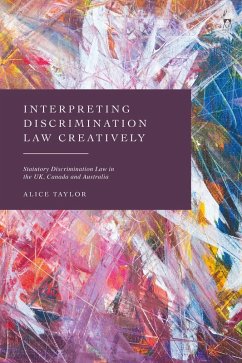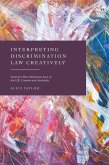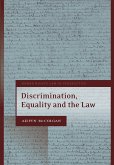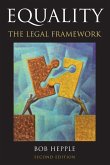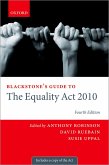This book explores the judiciary's role in achieving substantive equality utilising statutory discrimination law. The normative literature suggests that to eliminate discrimination, courts have to adopt a more substantive interpretation of discrimination laws, but the extent to which this has occurred is variable.
The book tackles the problem by exploring the idea that there needs to be a 'creative' interpretation of discrimination law to achieve substantive results. The author asks: is a 'creative' interpretation of statutory discrimination law consistent with the institutional role of the judiciary? The author takes a comparative approach to the interpretation of non-discrimination rights by considering the interpretation of statutory discrimination law in the UK, Canada and Australia.
The book explores the differences in doctrine that have developed by considering key controversies in discrimination law: Who does discrimination law protect? What is discrimination? When can discrimination be justified? The author argues that differences in the case law in each jurisdiction are explained by the way in which the appropriate role for the courts in rights review, norm elaboration and institutional competence is conceived in each studied jurisdiction. It provides valuable reading for academics, policy makers and those researching discrimination law and statutory human rights.
The book tackles the problem by exploring the idea that there needs to be a 'creative' interpretation of discrimination law to achieve substantive results. The author asks: is a 'creative' interpretation of statutory discrimination law consistent with the institutional role of the judiciary? The author takes a comparative approach to the interpretation of non-discrimination rights by considering the interpretation of statutory discrimination law in the UK, Canada and Australia.
The book explores the differences in doctrine that have developed by considering key controversies in discrimination law: Who does discrimination law protect? What is discrimination? When can discrimination be justified? The author argues that differences in the case law in each jurisdiction are explained by the way in which the appropriate role for the courts in rights review, norm elaboration and institutional competence is conceived in each studied jurisdiction. It provides valuable reading for academics, policy makers and those researching discrimination law and statutory human rights.

